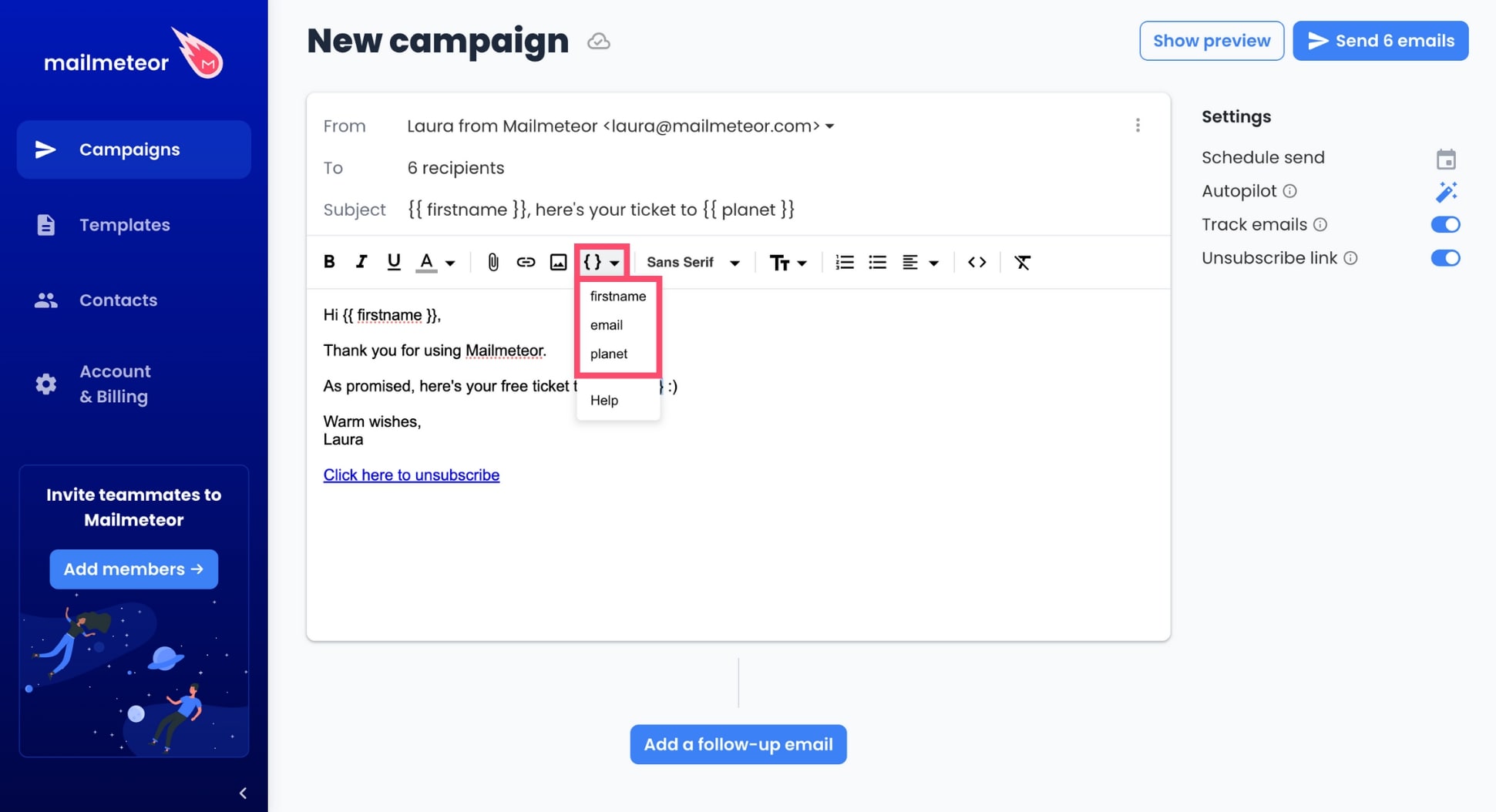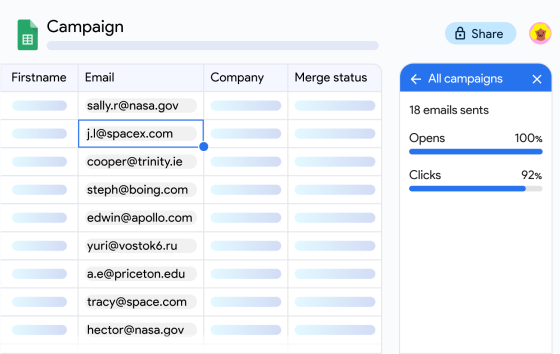Cold email can be a game-changer for reaching new customers, connecting with potential partners, or growing your business. But is it still legal in 2026? Short answer: yes. But only if you follow the rules.
From the U.S. to Europe and beyond, most countries have strict regulations to protect consumers from spam.
And if you don’t play by the rules, you may get hefty fines, end up on email blacklists, or damage your sender reputation.
In this guide, we’ll break down the legal aspects of cold emailing and share best practices to keep your campaigns compliant.
Here’s what we’ll cover:
- Is cold email different from spam?
- Is it legal to send cold emails in the United States
- Is it legal to send cold emails in Europe
- Is it legal to send cold emails in Canada
- Is it legal to send cold emails in Australia
- Is it legal to send cold emails in South Africa
- What are the penalties for illegal cold emailing?
- Best practices to stay compliant with cold email laws
Sounds good? Then let’s dive in.
Is cold email different from spam?
Cold emails are unsolicited messages. You’re basically reaching out to people who have never heard of you, and didn’t ask you to contact them. So, you might wonder: how is this different from spam?
Here are the key differences:
-
Cold emails are targeted, personalized messages that offer value to the recipient. They are typically sent as part of a professional outreach strategy to generate leads, build business relationships, or offer relevant products or services. As such, they are carefully crafted, respectful of the recipient’s time, and provide clear options to opt out of future communication.
-
Spam, on the other hand, is usually mass sent to large, untargeted lists without any regard for the recipient’s interests or relevance. What’s more, spam emails often contain misleading information, irrelevant content, or deceptive tactics. And they frequently violate anti-spam laws by not offering an opt-out option or hiding the sender’s identity.
In short, cold emailing prioritizes quality and compliance with the law, while spam focuses on mass distribution without regard for regulations, often crossing into illegal territory. Now, let’s explore cold email regulations in various countries.
Is it legal to send cold emails in the United States?
Yes, it is legal to send cold emails in the United States. However, cold emailing is regulated by a specific law, designed to protect consumers from unwanted or deceptive messages.
What regulation applies?
The key regulation governing cold emails in the U.S. is the CAN-SPAM Act (Controlling the Assault of Non-Solicited Pornography and Marketing Act). This federal law was enacted in 2003. It sets the rules for commercial emails, establishes requirements from senders, and outlines the penalties in case of violation.
How to comply?
Under CAN-SPAM, cold emailing is allowed. But only if your outreach strategy respects certain criteria. To comply with this cold email regulation, here are the ’ guidelines you have to follow:
- Don’t use misleading information: The “From”, “To”, and “Reply-To” fields must accurately reflect the identity of the sender. Your subject line must not be deceptive and reflect the content of your message.
- Include your physical address: Your email must contain a valid physical postal address. This can be your company’s address, a P.O. Box registered with the U.S. Postal Service, or a private mailbox.
- Provide an opt-out mechanism:: Every cold email you send must include a clear and easy-to-find option for recipients to opt out of future emails. This could be a clickable “unsubscribe” link or a reply mechanism.
- Honor unsubscribe requests: You must honor opt-out requests within 10 business days. And you can’t charge a fee or ask for unnecessary information during the opt-out process.
- Identify the email as an ad: While CAN-SPAM doesn’t require a specific format, you must make it clear that your email is promotional or for business purposes.
Is it legal to send cold emails in Europe?
Cold emailing is more tightly regulated in Europe compared to other regions. While this form of outreach can be legal in certain cases, it must adhere to strict data protection and privacy laws.
What regulation applies?
The central regulation that governs cold emailing in Europe is the General Data Protection Regulation (GDPR). This law became effective in 2018. It regulates how businesses handle personal data in Europe.
This applies to all organizations that collect, store, or process the personal data (including email addresses) of individuals within the European Union (EU) – regardless of where the organization is based.
How to comply?
Technically speaking, GDPR doesn’t forbid you from sending cold emails. However, your messages must respect key principles such as consent and legitimate interest. Here’s how to stay compliant with this cold email law:
- Obtain explicit content: The safest approach is to obtain explicit consent from individuals before sending cold emails. This involves getting their clear agreement to receive emails from you (typically through an opt-in form)
- Document consent obtention: Ideally, you should try to keep records of how and when the recipients’ consent was obtained. Because you may need to provide this evidence if challenged.
- Rely on legitimate interest: If you don’t have their explicit consent, you may still be able to justify cold emailing based on “legitimate interest”. This can apply when your email is directly relevant to the recipient’s job or industry.
- Perform a Legitimate Interest Assessment (LIA): This 3-step procedure is required if your organization wants to process personal data (like names and email addresses) based on the legal concept of legitimate interest.
- Provide clear opt-out options: Just like under CAN-SPAM, GDPR requires you to provide an easy way for recipients to opt out of future emails. This should be a clear option such as an unsubscribe link.
- Include your contact information: All commercial emails must include the sender’s contact details. This includes a physical postal address or other valid contact information, such as a phone number.
- Don’t share misleading information: Your cold email should contain clear sender information, including the identity of your business, and state why the recipient is receiving the message.
Is it legal to send cold emails in Canada?
In Canada, cold emailing is legal, but strictly regulated. In fact, Canada has one of the most stringent anti-spam laws. This country’s regulation places a strong emphasis on obtaining individuals’ consent before contacting them.
What regulation applies?
Since 2014, the primary law that regulates cold outreach in this region is Canada’s Anti-Spam Legislation (CASL). This regulation applies to everyone (individuals, business, non-profit organizations, etc.) who sends commercial electronic messages (CEM).
How to comply?
To stay compliant with CASL, you must follow these guidelines when sending your cold email campaigns:
- Obtain consent: Under CASL, consent is required before sending cold emails or any kind of commercial electronic message. Your recipient’s consent can be either express, or implied.
- Express consent is when someone explicitly agrees to receive your emails. For example, by signing up through a form or checking a box to opt in.
- Implied consent is when there is an existing relationship, or if the recipient has made their contact information publicly available (on a website, for example) without indicating they don’t want to receive unsolicited messages.
- Keep records of your compliance efforts: Under CASL, you must be able to prove you have consent in case of legal dispute.
- Clearly identify the sender: In every cold email, you must include the name of the sender, your company, and your contact information (mailing address + phone number or email address).
- Provide an opt-out mechanism: CASL requires you to include a clear way for recipients to unsubscribe from your emails. The opt-out mechanism should be functional for at least 60 days after the message is sent. And you must process unsubscribe requests within 10 business days.
Is it legal to send cold emails in Australia?
Cold emails are legal in Australia. But this country also has anti-spam laws to regulate unsolicited emails and protect consumers. You must obtain the recipients’ express or inferred content before sending any commercial emails.
What regulation applies?
The primary cold email law in Australia is the Spam Act 2003. This regulation applies to all commercial emails that offer, advertise, or promote goods and services. Including cold emails.
How to comply?
The Spam Act forbids unrequested messages. However, you can still send commercial electronic messages legally. To do so, you need to obtain people’s express or inferred consent. Here’s how to comply:
- Obtain consent: Whenever possible, aim to secure express consent. Use a sign-up form or similar opt-in method to ensure recipients explicitly agree to receive your emails. Keep records of when and how consent was obtained.
- Provide sender information: Your cold emails must include the correct identification of the sender, including your business name, a valid postal address, and contact information.
- ** Include an unsubscribe mechanism:** Make sure to provide an easy way for recipients to opt out of future communications. Once a recipient opts out, you cannot contact them again for commercial purposes.
- Avoid misleading content: The Spam Act also prohibits misleading or deceptive content in emails. This includes false subject lines, inaccurate claims, or any content that misrepresents the purpose of your email.
Is it legal to send cold emails in South Africa?
Sending cold emails is legal in South Africa. But you must comply with local data protection and electronic communication laws. These anti-spam regulations offer a bit more leeway than GDPR and CASL.
What regulation applies?
There are two main regulations that apply to cold emails in Africa. The Protection of Personal Information Act (POPIA) regulates the processing of personal information. It aims to protect the privacy of individuals by controlling how businesses collect, store, and use personal data.
The Electronic Communications and Transactions Act (ECTA) also governs electronic communications, including cold emails. In a nutshell, this law requires you to clearly identify the sender during unsolicited communications and provide an opt-out mechanism.
How to comply?
Anti-spam laws in South Africa do not expressly forbid you from sending cold emails or unsolicited messages. However, you can’t contact individuals who have opted out, and you must follow certain guidelines, such as:
- Obtain Consent: Under Section 69 of the POPI Act, you can contact recipients as long as they haven’t previously opted out. However, if they don’t reply or if they opt out, you’re prohibited from contacting them again.
- Avoid misleading practices: The POPI Act prohibits deceptive information in cold emails. Be transparent about the purpose of your email, and make sure that the recipients understand why you’re contacting them.
- Only process necessary personal data: Under the POPI Act, you should make sure to only collect the personal data that is strictly necessary for the purpose of your cold emailing campaign.
- Provide accurate sender information: Let the recipient know who you are. Include your name, company, and physical contact details. Your prospects should be able to identify and contact you easily.
- Include an easy way to opt-out: Add an unsubscribe link to your cold emails. Or a reply option that allows the recipient to request removal from your mailing list. Act on opt-out request promptly.
What are the penalties for illegal cold emailing?
Failing to comply with cold email laws can result in serious consequences, including hefty fines, reduced email deliverability, declining engagement rates, reputational damage, and even criminal penalties in the most extreme cases.
Financial penalties
Violations of cold email regulations can lead to substantial fines, with penalties reaching up to $50,120 per individual email that breaks the rules in the United States, $10 million for businesses and $1 million for individuals in Canada, or AU$2.1 million per day in Australia.
Lower deliverability
Beyond financial penalties, sending illegal cold emails can seriously damage your brand’s reputation. When recipients report your emails as spam, it affects your sender score, which can lead to lower deliverability.
Blacklisted emails
Another issue is that if your email domain or IP address gets flagged for sending spam, it could end up on email blacklists. This is every sales reps and marketers’ nightmare. Because it means your emails won’t reach people’s inboxes.
Loss of trust
More importantly, sending illegal cold emails can damage your reputation, causing consumers to view you as a spammer. This perception can lead to lower engagement, lost business opportunities, and long-term reputational harm.
Criminal penalties
Lastly, in extreme cases, where there is intent to defraud or deceive recipients, criminal penalties can apply. Under the CAN-SPAM Act, for example, falsifying email header information can result in criminal penalties, including imprisonment.
Best practices to stay compliant with cold email laws
Here are some best practices to help you avoid legal trouble and stay compliant with the various cold email regulations. Make sure to follow these guidelines to keep your cold email campaigns effective and legally sound.
Obtain consent when possible
Not all laws require express consent for B2B cold emails. But gaining explicit permission from recipients is (by far) the safest approach. Use sign-up forms, opt-in checkboxes, or direct requests to secure consent before sending your emails.
Provide clear identification
Your emails must clearly indicate who is sending the message. Make sure to always include your business name, a valid email address, and a physical postal address. You can insert these elements in your email signature.
Avoid deceptive subject lines
Your subject line should reflect the content of the email. Sharing misleading information in your emails can harm your credibility and result in legal penalties under laws like CAN-SPAM, GDPR, and CASL.
Include a clear opt-out mechanism
Every cold email you send must include an easy way for recipients to unsubscribe from future communications. Also, make sure to honor opt-out requests promptly (within 10 business days).

Keep your email list clean
Update your email list at least once a month to remove invalid or outdated email addresses and those who have opted out. A clean email list will reduce bounce rates while ensuring you only target individuals who have shown interest.
Personalize your emails
Instead of sending generic mass emails, focus on researching your recipients and offering content that is specific to their needs. This will improve your engagement rates, and reduce the risk of your cold emails being flagged as spam.

Need more help? Check our complete guide on cold email personalization and learn how to effortlessly customize your messages to get more clicks, opens, and replies.
Keep records of your compliance efforts
Document your compliance efforts. Keep records of how you collect consent, your email content, and how you process unsubscribe requests. This may come in handy in case of a legal challenge.
Avoid buying or scraping email lists
Try to build your email list organically by leveraging inbound marketing tactics, like webinar, e-books, or opt-in forms to attract leads. Many email laws, including GDPR and CASL, prohibit the use of purchased or scraped email lists.
Monitor what others do on your behalf
Even if you hire a third party to send cold emails on your behalf, you are still legally responsible for ensuring compliance with anti-spam regulations. Always verify that your email campaigns meet the legal requirements.
The bottom line
Cold email is a powerful outreach strategy. With an impressive ROI of $36 for every $1 spent, this marketing channel has become (very) popular among sales reps, entrepreneurs, and marketers.
It gives you the opportunity to grow your business, spark conversations, and drive revenue – at minimal cost. Unlike spam, sending cold emails is perfectly legal in most countries, including the United States, Europe, and Canada.
However, this doesn’t mean that you get to send any kind of emails to anyone. Strict regulations apply. Especially in Europe. To comply with cold email laws, make sure to avoid misleading information, and include a clear opt-out mechanism.
What’s next? Sign up to Mailmeteor (it’s free!) to create your first cold email campaign today. Our free plan lets you send up to 50 personalized emails a day. You can also track your emails, schedule follow-ups, and more.
Happy sending 💌


